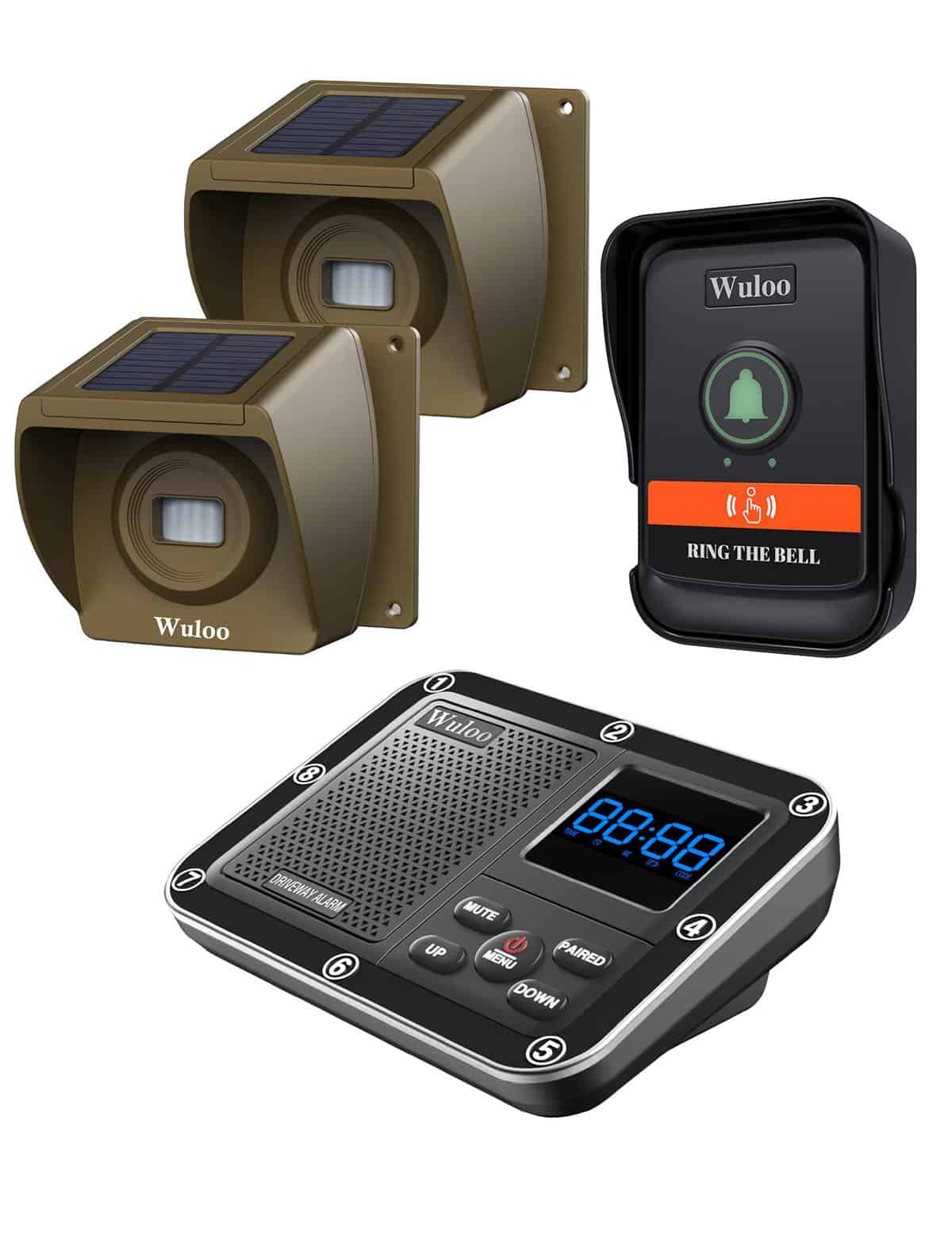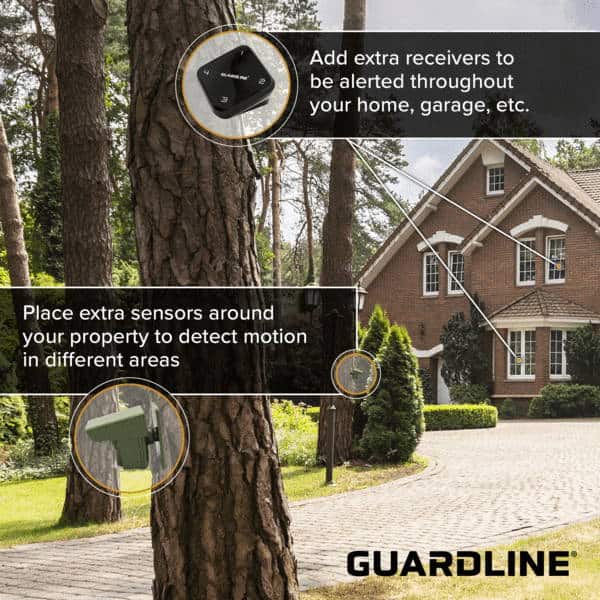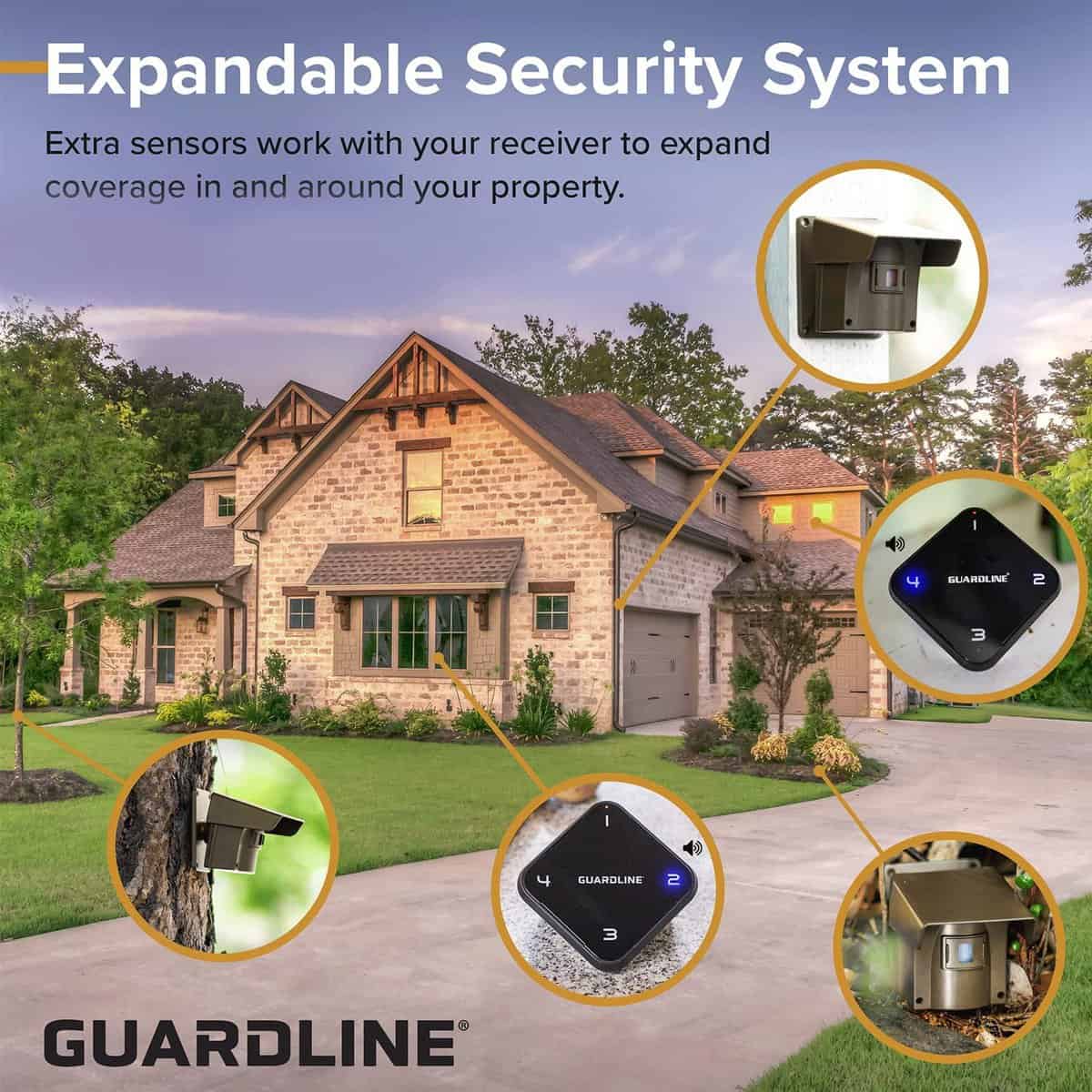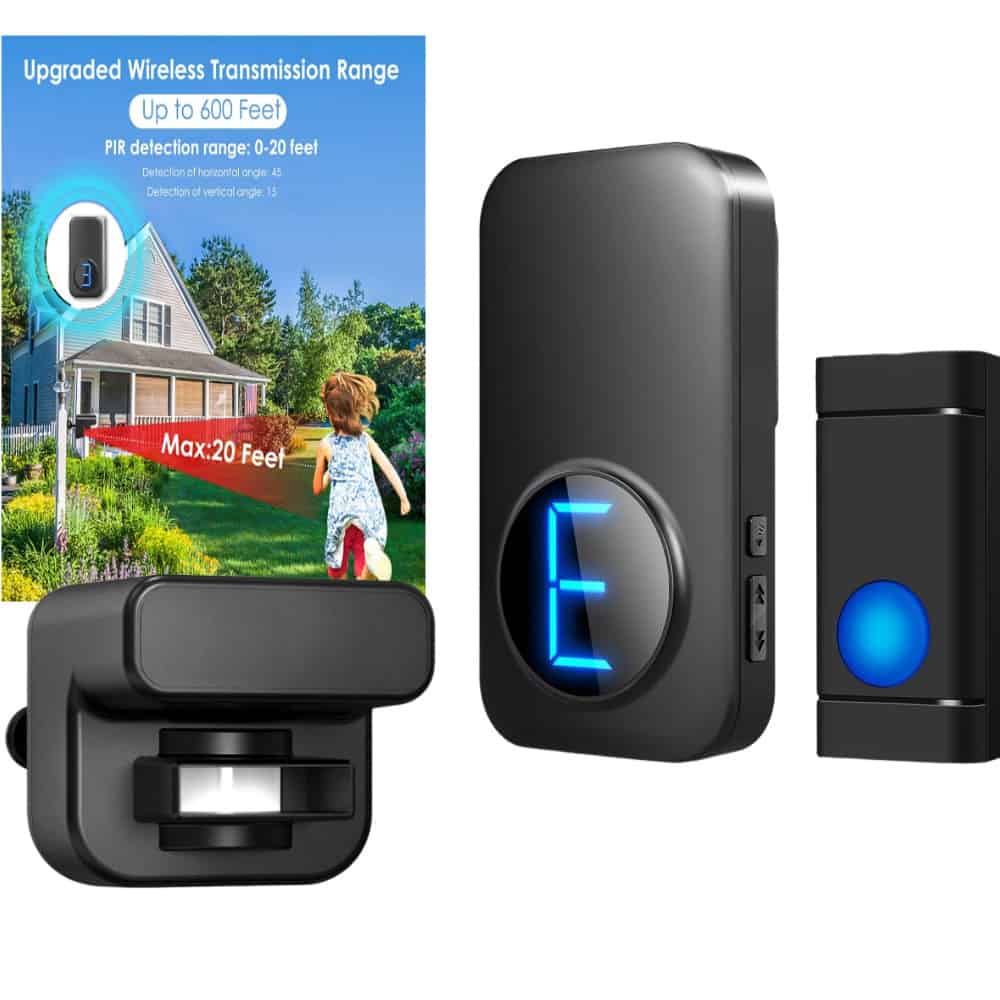Enhancing Home Security with Driveway Alarms
Enhancing Home Security with Driveway Alarms provides homeowners with an effective and reliable way to secure their properties. With their advanced technology and user-friendly installation process, these alarms offer peace of mind by alerting you whenever someone enters your driveway, allowing you to take necessary measures to ensure the safety of your loved ones and belongings.

Types of Driveway Alarms
Wireless Driveway Alarms
Wireless driveway alarms are becoming increasingly popular due to their ease of installation and flexibility. These alarms use radio frequency signals to detect motion and alert you when someone or something enters your driveway. They are battery-powered and do not require any wiring, making them a convenient choice for homeowners.
Wired Driveway Alarms
On the other hand, wired driveway alarms are a more traditional option. These alarms require installation of wires underground or along the driveway to connect the sensor to the receiver. While this may be a more complex installation process, wired driveway alarms are known for their reliable performance and lack of interference.
Solar-powered Driveway Alarms
Solar-powered driveway alarms are an eco-friendly option that utilizes solar energy to power the alarm system. These alarms have a solar panel that charges the internal battery during daylight hours, ensuring continuous operation even during power outages. They are a great choice for environmentally-conscious homeowners.
Battery-powered Driveway Alarms
Battery-powered driveway alarms are a convenient choice as they do not rely on electricity or wiring. These alarms typically use long-lasting batteries that can power the system for extended periods. Battery-powered alarms are easy to install and are a popular choice for those who want a hassle-free security solution.
Features to Consider
Detection Range
When choosing a driveway alarm, it is important to consider the detection range. The detection range determines how far the sensor can detect motion. This range can vary depending on the type and model of the alarm. It is crucial to select an alarm with a detection range that suits the size of your driveway to ensure optimal coverage and accurate detection.
Sensitivity
The sensitivity of a driveway alarm refers to how responsive it is to motion detection. Some alarms allow you to adjust the sensitivity level, while others have pre-set settings. Finding the right balance is important – a highly sensitive alarm may produce false alarms, while a less sensitive alarm may not detect certain movements. Consider your specific needs and environment when choosing sensitivity settings.
Alarm Volume
The volume of the alarm is an important consideration, especially if you have a large property or if you want to make sure the alarm can be heard throughout your home. Look for an alarm with adjustable volume settings so that you can customize it to your preferences. It is important to choose an alarm with a volume that is loud enough to grab your attention but not so loud that it becomes a nuisance.
Alert Options
Driveway alarms offer various alert options, including audible alerts, visual alerts, or even remote notifications. Audible alerts are common and typically include a sound like a chime or a bell. Visual alerts can include flashing lights or LED indicators. For added convenience and security, some driveway alarms can be connected to your smartphone or home security system, allowing you to receive real-time alerts wherever you are.

Installation Process
Choosing the Right Location
Before installing a driveway alarm, it is important to choose the right location for the sensor. The sensor should be positioned in a way that maximizes its detection range and minimizes false alarms. Consider the layout of your driveway, the angle of approach, and any potential obstacles that may affect the sensor’s performance. It is also important to consider the mounting height and angle to optimize the detection capabilities.
Mounting the Driveway Alarm Sensor
Once you have determined the right location for the sensor, it is time to mount it. Follow the manufacturer’s instructions for mounting the sensor securely. In most cases, driveway alarm sensors are mounted on a pole or a wall near the entrance of your driveway. Make sure to position the sensor at the recommended height and angle to ensure accurate detection.
Connecting the Receiver
The receiver is the device that receives the signals from the sensor and alerts you when motion is detected. Depending on the type of driveway alarm you have, the receiver may need to be connected to a power source or wireless network. Follow the manufacturer’s instructions for connecting the receiver, and make sure to test the connection to ensure proper functionality.
Integration with Home Security System
Wired Integration
If you already have a wired home security system, you may consider integrating your driveway alarm with it. This allows for a centralized monitoring and control system for your entire property. Consult with a professional security system installer to determine the compatibility and feasibility of integrating your driveway alarm with your existing wired system.
Wireless Integration
Wireless integration is another option that allows you to connect your driveway alarm to your wireless home security system. This integration enables you to receive alerts and monitor your driveway from your smartphone or other wireless devices. Check if your driveway alarm and wireless security system are compatible and follow the manufacturer’s instructions for wireless integration setup.
Smart Home Integration
With the rise of smart home technology, many driveway alarms now offer compatibility with popular smart home platforms. This integration allows you to automate various aspects of your home security system and control your driveway alarm using voice commands or smartphone apps. Ensure that your driveway alarm is compatible with the smart home platform of your choice and follow the integration instructions provided.

Benefits of Driveway Alarms
Enhanced Security
One of the main benefits of driveway alarms is enhanced security for your home. By providing an early warning system, driveway alarms alert you to any approaching vehicles or individuals, allowing you to prepare or take appropriate action. This added layer of security can deter potential intruders and provide peace of mind.
Early Warning System
Driveway alarms function as an early warning system by immediately alerting you to any activity in your driveway. This gives you ample time to respond before any potential threat reaches your property. Whether it is a delivery person, a guest, or an intruder, the early warning system provided by driveway alarms allows you to be proactive in protecting your home and loved ones.
Deterrent for Intruders
The mere presence of a driveway alarm can act as a deterrent for potential intruders. Knowing that there is a system in place to detect their presence and alert the homeowner can make intruders think twice before approaching your property. Driveway alarms help create a perception of heightened security, making your home a less attractive target for criminals.
Convenience
Driveway alarms add convenience to your daily life. Instead of constantly keeping an eye on your driveway, a driveway alarm can notify you when someone arrives, saving you time and energy. Whether you are expecting a package delivery or waiting for guests to arrive, a driveway alarm can help make your daily routine smoother and more efficient.
Factors Affecting Performance
Weather Conditions
Weather conditions can impact the performance of driveway alarms. Extreme temperatures, heavy rain, snow, or strong winds can affect the sensors and their ability to accurately detect motion. When choosing a driveway alarm, consider the climate in your area and make sure the alarm is designed to withstand the elements. Regular maintenance and occasional adjustments may be necessary to ensure optimal performance in various weather conditions.
Obstacles and Interference
Obstacles such as trees, shrubs, fences, or walls in the detection path of the sensor can affect the performance of your driveway alarm. They may block the detection range or cause false alarms. Similarly, wireless driveway alarms can be susceptible to interference from other electronic devices or structures. Carefully assess your surroundings and make any necessary adjustments to minimize potential obstacles and interference.
Maintenance and Battery Life
Regular maintenance is important to keep your driveway alarm functioning properly. Clean the sensor regularly to remove any dirt, debris, or spider webs that may accumulate and obstruct the detection range. Additionally, check the battery life of battery-powered alarms and ensure that the batteries are replaced or recharged as needed. Regular testing of the alarm system is crucial to maintain reliable performance.
Improving Effectiveness
Adding Additional Sensors
To enhance the effectiveness of your driveway alarm, consider adding additional sensors in strategic locations. Multiple sensors can provide a wider coverage area, especially for larger driveways or properties. By strategically positioning the sensors, you can reduce blind spots and ensure that any motion is detected, providing you with comprehensive security coverage.
Using Video Surveillance
In addition to a driveway alarm, video surveillance cameras can be a valuable addition to your home security system. Cameras allow you to visually monitor your driveway and record any activity. When integrated with the driveway alarm, video surveillance can provide a more comprehensive security solution. Surveillance footage can help in identifying potential threats or providing evidence in case of incidents.
Adjusting Detection Range and Sensitivity
Most driveway alarms allow you to adjust the detection range and sensitivity settings. By customizing these settings, you can optimize the performance of your driveway alarm for your specific needs. If you are experiencing false alarms, adjusting the sensitivity can help reduce them. Similarly, if you find that certain areas are not being covered, adjusting the detection range can help improve coverage.
Choosing the Right Driveway Alarm
Assessing Security Needs
Before choosing a driveway alarm, assess your specific security needs. Consider the size of your driveway, the type of property, and the level of security you require. If you live in a remote area with minimal traffic, a basic driveway alarm may be sufficient. However, if you live in a densely populated neighborhood or have valuable assets to protect, you may need a more advanced alarm system with customizable features.
Budget Considerations
Set a budget for your driveway alarm system. Prices can vary significantly depending on the type of alarm, brand, and additional features. Balance your security needs with your budget to find a driveway alarm that meets your requirements without compromising your finances. Remember that investing in a reliable and durable alarm system is a long-term investment in the safety and security of your home.
Customer Reviews and Ratings
Before finalizing your decision, read customer reviews and ratings on different driveway alarms. Hearing from others who have used the product can provide valuable insights into its performance, durability, and reliability. Look for reviews that specifically mention the features and benefits that are important to you, and consider feedback from trusted sources to make an informed decision.
Warranty and Support
Lastly, consider the warranty and support offered by the manufacturer. A reliable warranty gives you peace of mind that the product is backed by the manufacturer in case of any defects or issues. Additionally, check if the manufacturer offers customer support and assistance in case you have any questions or need help with the installation or operation of the driveway alarm.

Tips for Effective Usage
Regular Testing and Maintenance
To ensure that your driveway alarm is functioning properly, make it a habit to regularly test and perform maintenance tasks. Test the alarm system periodically to confirm that the sensor and receiver are communicating effectively. Clean the sensor and check the batteries regularly. Regular testing and maintenance will help you identify any issues and address them promptly.
Positioning the Alarm for Optimal Coverage
Pay attention to the positioning of the driveway alarm sensor to optimize its coverage. Mount the sensor at the recommended height and angle to ensure the best detection capabilities. Assess the layout of your driveway and any potential obstacles that may affect the sensor’s performance. By carefully positioning the sensor, you can minimize blind spots and improve the overall coverage.
Being Aware of False Alarms
While driveway alarms are designed to detect motion accurately, false alarms can still occur. Factors such as wildlife, moving branches, or even strong winds can trigger false alarms. Make sure to familiarize yourself with the typical triggers for false alarms and take appropriate action when they occur. Adjusting the sensitivity or detection range settings may help reduce false alarms.
Keeping the System Updated
As technology evolves, updates and firmware upgrades may become available for your driveway alarm system. Stay informed about any updates or upgrades released by the manufacturer and make it a habit to keep your system updated. This ensures that you have the latest features, bug fixes, and security enhancements to maximize the effectiveness of your driveway alarm.
Conclusion
Driveway alarms provide an effective and convenient way to enhance the security of your home. With various types of alarms available, such as wireless, wired, solar-powered, and battery-powered, there is a solution to suit different needs and preferences. By considering factors such as detection range, sensitivity, alarm volume, and alert options, you can select a driveway alarm that meets your requirements. The installation process involves choosing the right location, mounting the sensor securely, and connecting the receiver. Integration with home security systems, consideration of factors affecting performance, and exploring ways to improve effectiveness are important aspects to consider. When choosing a driveway alarm, make sure to assess your security needs, consider your budget, read customer reviews, and check the warranty and support provided. Following tips for effective usage, such as regular testing and maintenance, optimal positioning, and staying updated, will help you make the most of your driveway alarm system. Enhance your home security and enjoy the benefits of a driveway alarm system that provides enhanced security, acts as an early warning system, deters intruders, and adds convenience to your daily life.



